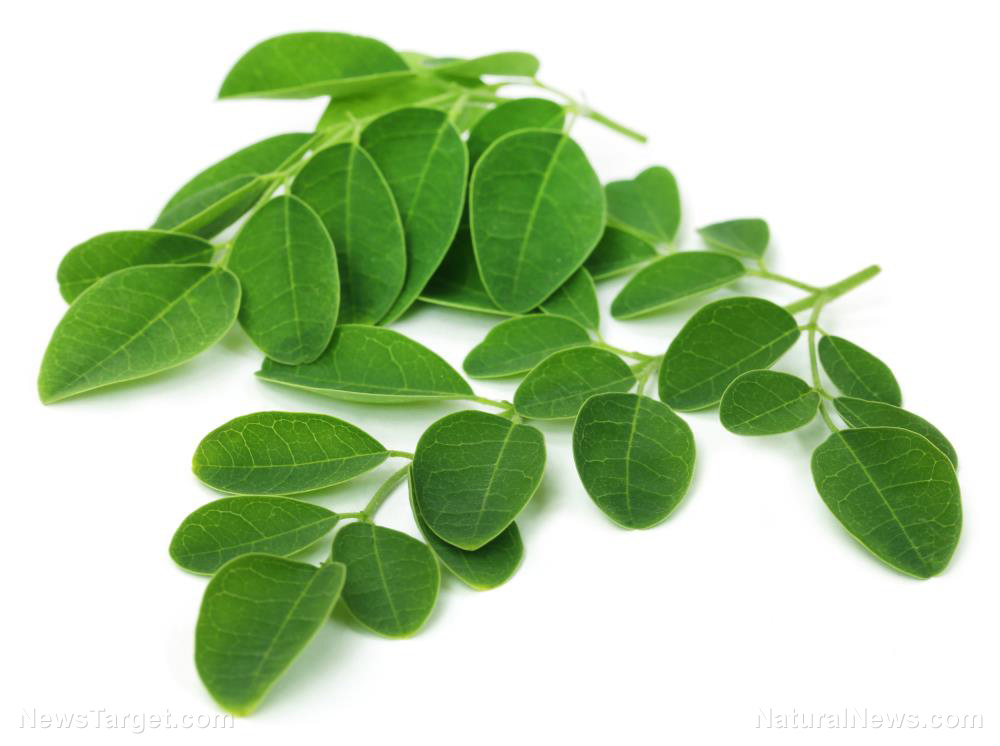
Advertisement
Meet Moringa oleifera, a drought-resistant tree touted to possess medicinal qualities. In fact, in India and Nepal, M. oleifera or moringa is also called the “miracle tree,” the “tree of life” and “mother’s best friend” because of its reported health benefits.
Used for millennia as a medicinal herb, there’s no doubting the health benefits and medicinal uses of moringa. In fact, it is considered as a panacea in traditional Indian and African medicines, and studies report that the plant had been used to treat an astounding 300 health conditions.
Moringa is also related to Brassicas like arugula, spinach and broccoli. This might explain the tree’s high amounts of nutrients and beneficial plant compounds, such as glucosinolates and flavonoids, that can also be found in members of the Brassica genus of plants.
Health benefits of moringa
It’s no surprise that moringa is fast emerging as a potent superfood outside of the Indian subcontinent. From the tree’s bark to its roots, all parts of moringa are popular ingredients in different cuisines and traditional medicines around the globe.
Interested in trying out moringa for yourself? Here are some incredible, science-backed benefits of this medicinal plant:
Fights free radicals
Free radicals are unstable molecules that come about as a result of pollution, eating fried foods and sun damage. More often than not, these molecules cause oxidative stress that leads to cell damage and premature aging. The antidote? Antioxidants, like quercetin, kaempferol, tannins and ascorbic acid that can be found in moringa.
Reduces inflammation
It might not look like it, but moringa’s round little leaves are potent inflammation-fighters. Studies found that an alkaloid called moringine and the plant pigment quercetin help suppress inflammation related to conditions like heart disease and cancer.
Regulates blood sugar and insulin production
Diabetics can also benefit from eating moringa as part of a balanced diet. Multiple studies found that moringa helps in reducing blood sugar in diabetics and suppressing spikes in blood sugar after a meal. Moringa also stimulates the production of insulin, the hormone responsible for regulating blood sugar. Take that, diabetes.
Protects against pathogenic bacteria
The pathogenic bacterial strain called Escherichia coli is responsible for 80 percent of all urinary tract infections (UTIs). Enter moringa. Hailed for its natural antibacterial properties, moringa helps treat UTIs and reduces the risk of catching it again.
Combats malnutrition
Moringa sticks out as an incredible superfood because of its range of nutrients and plant compounds. In fact, about 25 percent of moringa consists of proteins and essential amino acids that combat malnutrition in children and infants.
Supports maternal health
Pregnant mothers also benefit from eating moringa. For starters, the protein, minerals and vitamins in moringa all contribute to healthy fetal development. Randomized controlled trials (RCTs) also found that moringa leaf supplementation can help boost breastmilk production in nursing mothers.
Delicious uses of moringa
Moringa’s mild, tea-like taste can be easily stirred into juices and smoothies or incorporated into all sorts of recipes, from pastries to meat dishes. It’s also great for sneaking in some greens onto children’s plates.
Here are some delicious and nutritious recipes for you to try using moringa:
Moringa detox drink
Moringa makes for a great morning drink to jumpstart digestion, metabolism and other important bodily processes. Add honey and lemon to taste and drink it first thing in the morning.
Moringa tea
Moringa can also be enjoyed as a nice, soothing cup of tea. To make moringa tea, just boil moringa leaves and let it cool before drinking. If consumed regularly, moringa tea can help burn off a couple of pounds.
Moringa smoothie
Instead of drinking those store-bought protein shakes and juices, create a refreshing moringa smoothie instead. You can also toss in a couple of other fruits and greens, such as bananas and spinach, and use plant-based milk to create the ultimate nutrient-dense smoothie.
Moringa soup
Chopped or ground moringa leaves can be sprinkled on all sorts of soups, but you can also use the leaves to create an entire soup altogether. Just blend together moringa, spinach, potatoes, onions, garlic and coconut cream for a nutritious, full-bodied soup.
Moringa muffins
In the mood for some muffins? Skip the nuts and chocolate chips and toss in some chopped moringa into the muffin batter. You can also add moringa to cookie doughs and bread batters.
Moringa guacamole
Can’t get enough of good old guacamole? Give it a nudge in the nutrient department and toss in some chopped or ground moringa. Spread it on toast or use it as a dip for carrot sticks, cucumber slices, pineapples and other fruits.
Moringa salad dressing
Moringa can also be easily incorporated into a basic vinaigrette dressing. Just toss in a couple of teaspoons of organic moringa leaf powder into a classic vinaigrette and stir.
Moringa is a potent natural medicine rich in nutrients and beneficial plant compounds. Eat it as part of a balanced diet to reap its health benefits and medicinal properties.
Sources:
Advertisements







